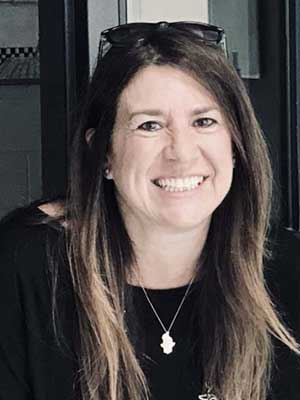Goals & Objectives
The Goals and Objectives of the PsyD program in School Community Psychology are as follows:
Goal 1. To produce graduates who have the requisite skills to become professional psychological practitioners who work in schools.
- Objective 1. Students demonstrate the ability to administer and interpret psychological assessment devices.
- Objective 2. Students demonstrate competence in counseling children and families.
Goal 2. To produce graduates with a strong foundation in the science of psychology and an appreciation of the role of science in psychological practice.
- Objective 1. Students demonstrate facility in the use of research methods prior to designing and initiating research projects.
- Objective 2. Students must apply their knowledge of statistics and research methods by designing and implementing research projects.
Goal 3. To produce graduates who are skilled in working in health service facilities that interface with schools.
- Objective 1. Students successfully complete required courses relevant to severe cases of emotional/behavioral maladjustment and to the functioning of facilities that interface with schools for the benefit of children and families.
- Objective 2. Students are expected to function on a level equivalent to a staff member within the health care facility where they are completing their community internship.
The School-Community PsyD program employs a scholar-practitioner model, enhanced by an empirically based perspective and a thorough grounding in methodology. Courses, practical experiences, and internships focus on the practice of psychology. Practice is augmented and enhanced by training students to maintain an empirically based focus. Thus, in addition to practitioner-oriented coursework and training, students are also trained to initiate and carry out school and community-oriented research. The program also focuses on childhood behavior disorders, learning, emotional disorders, trauma, forensic psychology, and cultural adaptation. The program faculty possess varied expertise and provide specific training in consultation, assessment, community-based services, preventive mental health programs, and childhood, youth, young adult, and family interventions. The PsyD program offers electives that can be taken in the Hofstra University School of Law and the School of Education and Allied Human Services.
 Paul Meller, PhD
Paul Meller, PhD Jeffrey J. Froh
Jeffrey J. Froh Kim Gilbert
Kim Gilbert Monique Griffith
Monique Griffith Sergei Tsytsarev
Sergei Tsytsarev Emily E. Barkley-Levenson
Emily E. Barkley-Levenson Charles Dill
Charles Dill John Guthman
John Guthman Eugene Lubliner
Eugene Lubliner Karen Mackler
Karen Mackler Amy Masnick
Amy Masnick Merry E. McVey-Noble
Merry E. McVey-Noble Norman Miller, PhD, ABPP
Norman Miller, PhD, ABPP Joseph Scardapane
Joseph Scardapane